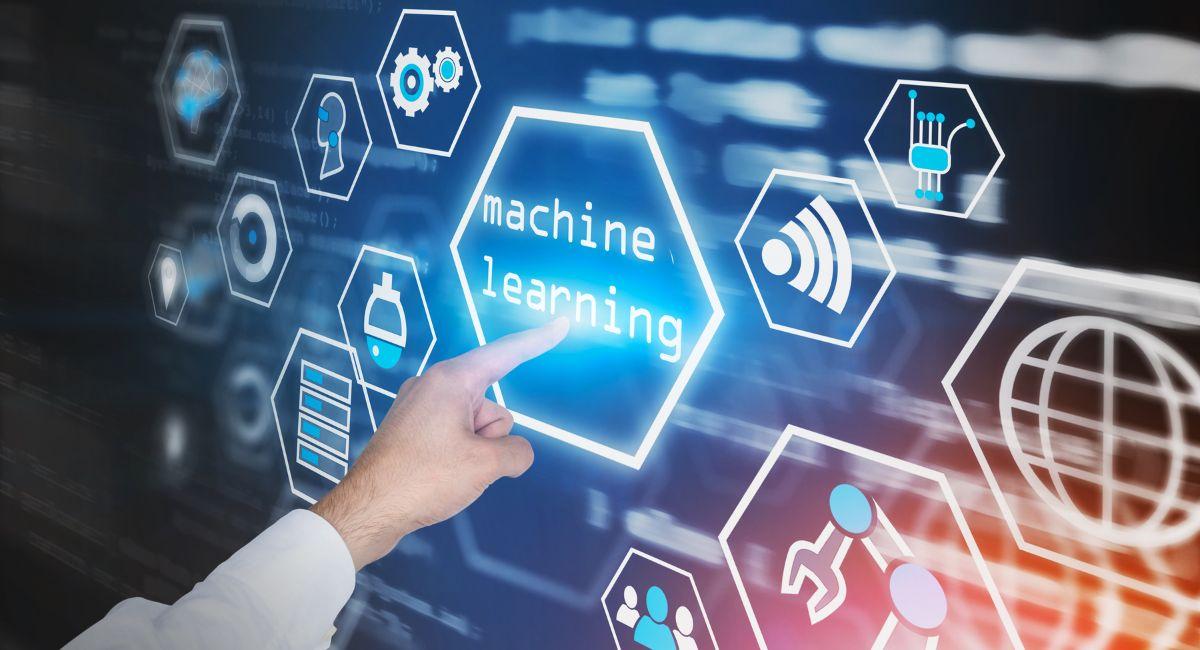Exploring The Top 5 Intriguing Ways Machine Learning Will Effect The DeFi Landscape
In the dynamic realm of decentralized finance (DeFi), technological advancements are reshaping the traditional financial landscape. One such groundbreaking technology, machine learning, is playing a pivotal role in enhancing the efficiency, security, and innovation within the DeFi ecosystem. This article delves into the multifaceted ways in which machine learning is contributing to the evolution of decentralized finance.
Understanding DeFi:
Decentralized finance represents a paradigm shift from traditional financial systems by leveraging blockchain technology to create open and permissionless financial services. These services include lending, borrowing, trading, and yield farming, all of which are executed through smart contracts on blockchain platforms like Ethereum.
The Complexity of DeFi assessed through machine learning:

DeFi protocols operate in a complex environment with diverse financial instruments, and their success relies on accurate risk assessment, efficient decision-making, and real-time adaptation to market dynamics. This complexity has paved the way for machine learning to emerge as a game-changer within the DeFi space.
- Risk Assessment and Management: Machine learning algorithms excel in analyzing vast datasets and identifying patterns that may go unnoticed by traditional risk management systems. In DeFi, these algorithms can assess the risk associated with lending and borrowing, enabling more accurate pricing of assets and determining appropriate collateral ratios. This enhances the overall security and stability of the DeFi ecosystem.
- Smart Contract Security: Smart contracts are the backbone of DeFi applications, and any vulnerabilities in these contracts can result in substantial financial losses. Machine learning algorithms are employed to identify potential security risks and vulnerabilities in smart contracts by analyzing their code. This proactive approach helps in mitigating the risks associated with potential exploits, ensuring a more secure DeFi environment.
- Market Prediction and Trading Strategies: The volatile nature of cryptocurrency markets requires sophisticated strategies for trading and investment. Machine learning models can analyze historical price data, market trends, and social media sentiment to predict price movements and optimize trading strategies. This capability is invaluable for DeFi traders seeking to maximize their returns in a rapidly changing market.
- Automated Liquidity Provision: Liquidity provision is a fundamental aspect of DeFi, and machine learning algorithms are being employed to optimize liquidity pools. These algorithms dynamically adjust liquidity based on market conditions, ensuring that users receive optimal trading execution while liquidity providers earn competitive returns. This contributes to the overall efficiency and liquidity of decentralized exchanges.
- Personalized Financial Services: Machine learning enables DeFi platforms to offer personalized financial services based on user behavior, preferences, and risk profiles. This customization enhances user experience and engagement, attracting a broader audience to the decentralized finance space.
As decentralized finance continues to gain traction, the integration of machine learning is proving to be a transformative force. From risk management to smart contract security, market prediction, and personalized financial services, machine learning is enhancing the capabilities of DeFi platforms and contributing to the overall maturation of the ecosystem. As technology continues to advance, the synergy between machine learning and decentralized finance is poised to redefine the future of global financial systems.
Also, read – Exploring The Synergy: Machine Learning And Blockchain
How will machine learning impact the DeFi investment sector?

Machine learning is set to revolutionize the decentralized finance (DeFi) investment sector by introducing advanced analytics, automation, and predictive modeling. Here’s a detailed exploration of how machine learning is poised to impact DeFi investments:
1. Algorithmic Trading Strategies:
Machine learning excels in developing and optimizing trading strategies. In the context of DeFi investments, algorithms can be designed to analyze market data, identify arbitrage opportunities, and execute trades at optimal times. These algorithms adapt to changing market conditions in real-time, maximizing returns and minimizing losses. As a result, investors can benefit from more efficient and adaptive trading strategies in the decentralized financial landscape.
2. Market Prediction and Trend Analysis:
Predicting market trends is crucial in the volatile world of DeFi. Machine learning models can analyze historical price data, social media sentiment, and other relevant factors to forecast market movements. Investors can leverage these predictions to make informed decisions about when to enter or exit positions, optimizing their portfolio performance.
3. Fraud Detection and Security:
Security is paramount in DeFi, and machine learning plays a crucial role in identifying and preventing fraudulent activities. Machine learning algorithms can analyze transaction patterns, user behavior, and smart contract code to detect anomalies and potential security threats. This proactive approach enhances the overall security of DeFi investments, protecting investors from potential exploits and hacks.
4. Investment Strategies:
Machine learning enables the customization of investment strategies based on individual investor profiles, preferences, and risk tolerances. DeFi platforms can use machine learning algorithms to provide personalized investment recommendations, asset allocations, and risk management strategies tailored to each investor. This customization enhances user experience and attracts a broader audience to participate in decentralized finance.
5. Automated Portfolio Management:
Machine learning-driven robo-advisors can automate portfolio management in DeFi. These systems can continuously analyze market conditions, rebalance portfolios, and optimize asset allocations based on predefined investment goals. This automation not only saves time for investors but also ensures that portfolios are actively managed in response to changing market dynamics.
The impact of machine learning on the DeFi investment sector is transformative. From risk assessment and algorithmic trading to market prediction, liquidity provision optimization, and personalized investment strategies, machine learning is enhancing the efficiency, security, and accessibility of decentralized finance. As the synergy between machine learning and DeFi continues to evolve, investors can expect a more sophisticated and data-driven approach to managing and growing their decentralized investment portfolios.
How will Machine learning affect the workforce in DeFi?

The integration of machine learning in decentralized finance (DeFi) is poised to have a profound impact on the workforce, reshaping roles, responsibilities, and the skill sets required within the industry. Here’s a detailed exploration of how machine learning will affect the workforce in DeFi:
1. Automation of Repetitive Tasks:
Machine learning algorithms can automate routine and repetitive tasks within DeFi organizations. This includes tasks such as data entry, verification processes, and basic customer support. As a result, there may be a shift in the workforce, with fewer roles focused on manual and repetitive tasks, allowing employees to concentrate on more strategic and complex responsibilities.
2. Increased Efficiency in Data Analysis:
Machine learning enables more efficient data analysis, allowing DeFi professionals to glean insights from vast datasets quickly. This affects roles related to data analysis and interpretation, requiring professionals who can work collaboratively with machine learning tools to extract meaningful information. Data scientists and analysts may find their roles evolving to include more collaboration with machine learning algorithms.
3. Creation and Management of Machine Learning Models:
The development, implementation, and maintenance of machine learning models will become integral to DeFi operations. This creates a demand for professionals skilled in machine learning, including data scientists, machine learning engineers, and algorithm developers. As DeFi organizations increasingly rely on predictive modeling and algorithmic decision-making, roles related to creating and managing these models will see significant growth.
4. Risk Management and Compliance:
Machine learning is employed in DeFi for risk assessment and compliance monitoring. This affects roles in risk management and compliance, where professionals will need to understand and interpret the outputs of machine learning algorithms. Compliance officers and risk analysts may need to work closely with machine learning tools to ensure regulatory adherence and manage associated risks effectively.
5. Cybersecurity and Fraud Prevention:
With the integration of machine learning for security purposes, roles in cybersecurity and fraud prevention will evolve. Cybersecurity professionals will need to understand and adapt to the use of machine learning in identifying and preventing security threats. This may lead to an increased demand for professionals skilled in both traditional cybersecurity and machine learning-based security solutions.
6. Algorithmic Trading and Financial Analysis:
As machine learning becomes more prevalent in algorithmic trading and financial analysis within DeFi, roles in these areas will evolve. Traders and financial analysts will need to collaborate with machine learning algorithms to optimize trading strategies, analyze market trends, and make informed investment decisions. This requires a combination of financial expertise and proficiency in machine learning applications.
7. Development of User-Friendly Interfaces:
Machine learning can enhance user experience through the development of personalized interfaces and recommendation systems. Roles in user experience (UX) design and interface development may evolve to incorporate machine learning capabilities. Designers and developers will need to understand how to integrate machine learning features into user interfaces to create more personalized and intuitive experiences for DeFi platform users.
8. Ongoing Learning and Adaptation:
The introduction of machine learning in DeFi necessitates a culture of ongoing learning and adaptation within the workforce. Professionals will need to stay abreast of advancements in machine learning technologies, tools, and methodologies to remain effective in their roles. Continuous learning and upskilling will become critical for individuals working in the dynamic and evolving field of DeFi.
The incorporation of machine learning in DeFi is poised to transform the workforce by automating routine tasks, creating new roles focused on machine learning development and implementation, and evolving existing roles to require a blend of financial expertise and proficiency in machine learning applications. As the industry continues to innovate, the workforce in DeFi will need to adapt to the changing technological landscape, emphasizing collaboration between human professionals and machine learning tools.
https://twitter.com/i/status/1453157696551673857

The integration of machine learning in the decentralized finance (DeFi) landscape brings about numerous benefits, but it also poses several challenges and regulatory considerations. Here’s a detailed exploration of the challenges and regulations associated with machine learning in DeFi:
Challenges:
- Data Privacy and Security:
- Challenge: Machine learning algorithms in DeFi rely heavily on data, including sensitive financial and personal information. Ensuring the privacy and security of this data presents a significant challenge, especially in decentralized and open environments.
- Solution: Implementing robust encryption, secure data storage, and decentralized identity solutions can help address data privacy and security concerns.
- Algorithmic Bias and Fairness:
- Challenge: Machine learning models may inadvertently incorporate biases present in historical data, leading to unfair outcomes. This is a concern in DeFi, as biased algorithms can impact lending decisions and contribute to systemic inequalities.
- Solution: Regular audits of machine learning models, transparency in decision-making processes, and the incorporation of fairness metrics can help mitigate algorithmic bias.
- Lack of Explainability:
- Challenge: Many machine learning models, especially complex ones like neural networks, lack explainability. In financial contexts, understanding why a model makes a specific decision is crucial for transparency and regulatory compliance.
- Solution: The development and adoption of explainable AI techniques can enhance the transparency of machine learning models, allowing stakeholders to understand the rationale behind decisions.
- Regulatory Uncertainty:
- Challenge: The regulatory landscape for DeFi and machine learning is evolving, and there is a lack of clarity in some jurisdictions. Regulatory uncertainty can impede the widespread adoption of machine learning in DeFi.
- Solution: Collaborative efforts between industry stakeholders, regulators, and policymakers can contribute to the development of clear and adaptive regulatory frameworks that foster innovation while ensuring consumer protection.
- Model Robustness and Adversarial Attacks:
- Challenge: Machine learning models are vulnerable to adversarial attacks, where malicious actors intentionally manipulate input data to deceive the model. Ensuring the robustness of models in the face of such attacks is a significant challenge.
- Solution: Regular testing for model robustness, incorporating adversarial training, and implementing security measures can enhance the resilience of machine learning models against adversarial attacks.
Regulatory Considerations:
- Data Protection Regulations:
- Regulation: Data protection regulations, such as GDPR in Europe, require organizations to ensure the lawful and transparent processing of user data.
- Compliance: DeFi platforms utilizing machine learning must comply with data protection regulations by implementing privacy-preserving measures, obtaining user consent, and providing mechanisms for data access and deletion.
- Anti-Money Laundering (AML) and Know Your Customer (KYC) Compliance:
- Regulation: DeFi platforms are subject to AML and KYC regulations to prevent financial crimes and ensure the identification of users.
- Compliance: Implementing machine learning solutions for AML and KYC compliance, along with traditional methods, can enhance the effectiveness of identity verification and transaction monitoring.
- Transparency and Explainability Requirements:
- Regulation: Regulatory bodies may require transparency and explainability in financial decision-making processes.
- Compliance: DeFi organizations using machine learning should adopt practices and technologies that provide transparency into model decisions and ensure that stakeholders can understand the reasoning behind algorithmic outcomes.
- Market Integrity and Consumer Protection:
- Regulation: Regulations focus on maintaining market integrity and protecting consumers from fraudulent activities.
- Compliance: DeFi platforms utilizing machine learning must implement measures to detect and prevent market manipulation, fraud, and other illicit activities, ensuring a fair and secure environment for users.
- Cross-Border Regulatory Coordination:
- Regulation: DeFi platforms often operate across borders, requiring coordination between regulatory bodies in different jurisdictions.
- Compliance: Establishing frameworks for cross-border regulatory cooperation and compliance with international standards can help DeFi organizations navigate the complex regulatory landscape.
Conclusion:
The integration of machine learning in DeFi presents both challenges and regulatory considerations that need to be addressed for the sustainable and responsible growth of the industry. Collaboration between industry participants, regulatory bodies, and other stakeholders is crucial to establishing a regulatory framework that balances innovation with consumer protection and market integrity. As the landscape evolves, adapting to changing regulations and addressing emerging challenges will be essential for the continued success of machine learning in the DeFi space.
Stay informed with daily updates from Blockchain Magazine on Google News. Click here to follow us and mark as favorite: [Blockchain Magazine on Google News].
Get Blockchain Insights In Inbox
Stay ahead of the curve with expert analysis and market updates.
latest from tech
Disclaimer: Any post shared by a third-party agency are sponsored and Blockchain Magazine has no views on any such posts. The views and opinions expressed in this post are those of the clients and do not necessarily reflect the official policy or position of Blockchain Magazine. The information provided in this post is for informational purposes only and should not be considered as financial, investment, or professional advice. Blockchain Magazine does not endorse or promote any specific products, services, or companies mentioned in this posts. Readers are encouraged to conduct their own research and consult with a qualified professional before making any financial decisions. The featured image used is just a creative depiction of the title and it does not intend to hurt sentiments of any person or institution. If it hurts anyone sentiments, please do not hesitate to reach out to Blockchain Magazine.

 Bitcoin
Bitcoin  Ethereum
Ethereum  XRP
XRP  Tether
Tether  Solana
Solana  USDC
USDC  Dogecoin
Dogecoin  Cardano
Cardano  Lido Staked Ether
Lido Staked Ether  TRON
TRON  Wrapped Bitcoin
Wrapped Bitcoin  Chainlink
Chainlink  Wrapped stETH
Wrapped stETH  Avalanche
Avalanche  Sui
Sui  Stellar
Stellar  Hedera
Hedera  Toncoin
Toncoin  Shiba Inu
Shiba Inu  LEO Token
LEO Token  Hyperliquid
Hyperliquid  Litecoin
Litecoin  Bitget Token
Bitget Token  WETH
WETH  USDS
USDS  Polkadot
Polkadot  Bitcoin Cash
Bitcoin Cash  Ethena USDe
Ethena USDe  Wrapped eETH
Wrapped eETH  MANTRA
MANTRA  Uniswap
Uniswap  Ondo
Ondo  Pepe
Pepe  Aave
Aave  Monero
Monero  NEAR Protocol
NEAR Protocol  WhiteBIT Coin
WhiteBIT Coin  Mantle
Mantle  Official Trump
Official Trump  Aptos
Aptos  Dai
Dai  Internet Computer
Internet Computer  Ethereum Classic
Ethereum Classic  Bittensor
Bittensor  Cronos
Cronos  OKB
OKB  POL (ex-MATIC)
POL (ex-MATIC)  Gate
Gate 




